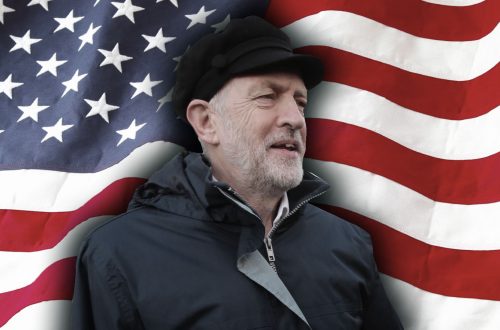Following on from Howie’s post, here are some further thoughts on the thread below Andy Newman’s Trojan Horse piece. In the post itself Andy correctly points out the confusions involved in discussing a word such as ‘extremism’, used to mean so many different things, but offers a problematic conclusion.
Conservative religious beliefs and practices are not terrorism, and a tolerant liberal state should permit people freedom to worship as they see fit.
The category ‘conservative religious beliefs and practices’ includes all sorts of things, some totally benign, others fine in the private sphere but inappropriate in a secular school, still others chillingly bigoted and discriminatory.
The thread then kicks off with a typically tiresome comment from John Wight:
The only extremism that has emerged from this scandal is located in the Cabinet, with Michael Gove revealed beyond doubt to be a dangerous zealot
However there are also sensible comments from a secular perspective, all greeted with disapproval by both John and Andy. Here for example Nick Wright offers a very reasonable take on the place of religion in schools.
The only rational basis for a regime of toleration is for schooling to be totally secular. This does not mean that children should be forced to eat food that their parents belief system disallows or that the display of religious symbols or the wearing of particular clothing styles should be banned …
Francis King, later down the thread, quotes this and comments archly:
I’d be intrigued to see an attempt at a rational critique of Nick’s wholly reasonable argument here. Or has rationality also become tainted by its association with rationalism?
Here’s another very sensible comment from sandy, responding to a charge that secularism can be elitist:
Possibly it has if advanced by those who simply view the religious as deluded fools but that is not the socialist position. Anyway the growth of elitist secularism is as nothing compared to the growth of reactionary religious currents on a world scale. The hatred that these currents generate against those of other faiths or against those who have no faith is a really reactionary development over the last few years and has to be resisted. Syria and Nigeria are two obvious examples. But the growth of Christian fundamentalism and political Islam in Britain are two other examples which must be fought by socialists. Are you really saying that socialists should support state funding for faith schools?
Here’s Andy’s ridiculous response, which (as sandy correctly points out) distorts his use of the word ‘fought’.
You will have plenty of allies in that fight: Britain First, the BNP, Liberty GB, UKIP, AWL, EDL, SIOE, Gates of Vienna, Pam Gellar, et al.
Does it not cause you some reflection that when the EDL has been attempting to terrorise communites you use the language of “fighting” Islam?
It is very clear from his overall contribution on this thread that sandy is no anti-Muslim bigot and deplores the demonization of Islam, but in a later comment Andy accuses him of trying to launch an attack on Muslims.
Karl Stewart raises a issue which I’ve also been thinking about in the context of secular states schools:
Remember state schools which claim to be ‘non-faith’ are actually tending towards CofE as that is officially the ‘state’ religion. So to put your question differently, why should people of other faiths have to attend a CofE school?
I think that’s a good point, and one worth engaging with, even though schools with different demographics can apply for permission to focus their assemblies on the teaching of another faith.
Here’s perhaps the most worrying comment on the thread. Once again, it’s from Andy.
How can religious belief be an individual choice, when systems of belief are created socially and collectively? How can the state ignore systems of belief that codify as morality the choices of how indiviudals interact? Why is religion regarded as only an area of individual choice, thus elevating as exemplary and normative a concept of society as atomised individuals confronted by a uniform state? How can such a concept of citizenship accomodate, for example, other forms of collectivism?
How can, or should, religious belief not be an individual choice? How is being confronted with a ‘uniform state’ (whatever that means) any worse than being trapped by a constricting religious background, not just at home, but at school too?
The girls interviewed recently for Sky News complained their school was imposing an intolerant form of their faith, at odds with their own beliefs. Some Muslims in France feel their choices are being curtailed by the ban on the hijab in school, not to mention Marine Le Pen’s intolerance for dietary accommodations. Secularism, like extremism, can be defined in more than one way, but Nick Wright’s tolerant, flexible, British interpretation (by contrast with the more unyielding French laïcité) seems the right model for our state schools.


